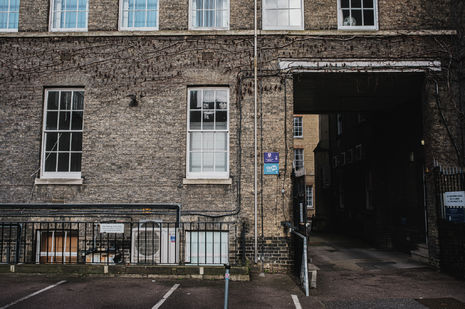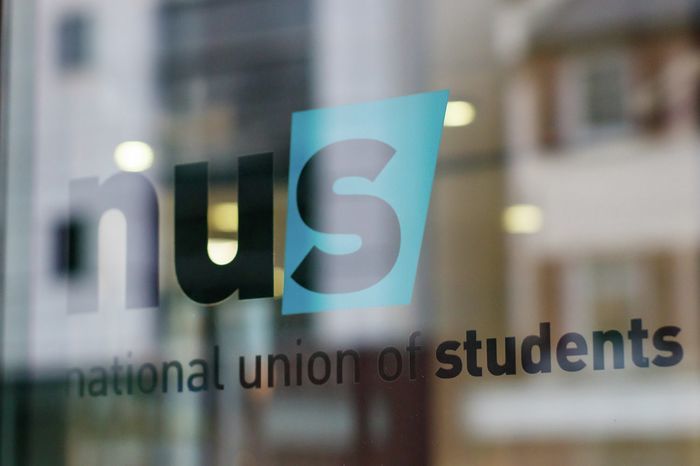Who in their right minds would join the Student Union?
At its heart, the Student Union has no accountability, a toxic culture, lazy and self-serving leadership, and a long history of failure. Is it even worth trying to fix?

I have officially been a student at Cambridge University for five freshers’ weeks now. In that time, I have seen many bright-eyed politically-engaged students arrive in Cambridge, interested to learn about student politics; and I have seen just as many formerly bright-eyed students leave Cambridge jaded and frustrated by the Students’ Union.
The list of SU scandals I’ve observed has been as long as your arm. Some of them are genuinely absurd: voting to ban the Rifle Association from bringing firearms to the Freshers’ Fair to ‘demilitarise’ it; nearly voting through a motion to insist on online-only teaching for all students even after lockdown, being forced to U-turn only after widespread student outrage; bringing a motion on the Israel-Palestine conflict on Shavuot when observant Jewish students could not appear to speak; and so many more. The SU is widely perceived as out-of-touch and unrepresentative— with students feeling disconnected from it and much closer to their JCRs and MCRs— and a vast majority deigning to vote in its elections.
The reason the SU ends up in this position constantly is simple. There is no accountability for paid Sabbatical Officers ('sabbs' in SU lingo) whatsoever, so why should they bother doing their jobs well? In theory, accountability comes in the form of the SU Council. Council’s job is twofold: first, it is supposed to set the policies that the sabbs carry out; second, it is supposed to scrutinise the sabbs (and other members of the SU Executive) to make sure that they are in touch with and accountable to student opinion. Your JCR or MCR may have a member whose job it is to sit on Council —often a vice-president or VPX— to ensure that it functions well.
But rather than designing and voting on policy that the Exec carries out, Council typically just waves through policies designed by the sabbs. Even when it’s not unanimous, the sabbs still typically win. On the very rare occasion where they don’t (as with the online teaching motion), the end result is an amended compromise— rather than an outright defeat.
How did we get here? Many people assume it’s just apathy, which is certainly part of the problem. But think about it numerically for a second. Suppose there were a huge shift in student opinion, leading to a huge swing in voting. Two-thirds of JCR and MCR representatives on Council are now highly-engaged. They're ready and willing to represent student opinion and hold the SU Exec to account— something, in reality, almost guaranteed not to happen. I’m sorry to break it to you: this would still be a minority.
That's because Council isn’t just made up of reps from your JCR and MCR. It also includes representatives of the SU’s campaigns, various other members representing student groups and academic ‘Schools’, and the sabbs themselves— who get a vote each. Between the sabbs, the campaigns and the remaining student representatives, even in my dream scenario there would still be an outright majority for the coalition of the radical and the bored: same-old same-old.
So, when sabbs consistently fail to live up to their promises, or go directly against student opinion on things like online education, or take extremist positions without real input from students, we can’t do anything at all – and change is almost unimaginable.
The University is content to let the SU chug along, at great expense, because it has no particular reason to care about it— unless the SU’s failures seriously threaten University interests. And, as long as the SU’s failure mode is toothless, apathetic, and unrepresentative, it doesn't care. Nowadays, the only times the SU causes so much as a headache for the University at an institutional level is when it’s acting as the guerrilla wing of UCU, as with the online teaching motion. Even then, the University would rather just deal with UCU directly and let the SU protest into the ether.
Precisely because the institution is so broken— and there are so few people with the right priorities— when there's someone that actually does have the right priorities, they have a significant amount of leverage to get good work done. I know many individual examples of hard-working and caring Council members, sabbs, Exec members, and JCR committee members. On the margin it’s amazing how much good they’ve done. Particularly on climate issues, the way the University works affords a ton of power to students. But this has been underutilised by sabbs, who care more about protests than policy. You can do really important things in the SU. But a few good individuals working within a deeply broken system will always be fighting an uphill battle.
So, if you are a Cambridge student who wants to fix things, I would love for you to get involved in student politics. But you must know what it entails. You will find yourself struggling uphill constantly, with concrete wins that you can count on the fingers of one hand. You will feel a constant weight on your shoulders that will never be lifted until you are out for good. You will be surrounded by the most ideological people that you will ever meet, and also the laziest people you will ever meet. You will likely have few constant friends. Scandals will regularly destroy your coalition of acquaintances. And you will never—not ever—change the system in your favour. If you can find meaning in marginal change which imperceptibly and temporarily improves the lives of a few people you will probably never meet, go for it. But if you are like most people, my advice is simple. Just give up. Go join the Rambling Club or something.
 News / Colleges charge different rents for the same Castle Street accommodation2 March 2026
News / Colleges charge different rents for the same Castle Street accommodation2 March 2026 News / News in Brief: waterworks, wine woes, and workplace wins 1 March 2026
News / News in Brief: waterworks, wine woes, and workplace wins 1 March 2026 News / Climate activists protest for ‘ethical careers policy’1 March 2026
News / Climate activists protest for ‘ethical careers policy’1 March 2026 News / Angela Merkel among Cambridge honorary degree nominees27 February 2026
News / Angela Merkel among Cambridge honorary degree nominees27 February 2026 News / Private school teacher who lied about Cambridge degree barred from teaching27 February 2026
News / Private school teacher who lied about Cambridge degree barred from teaching27 February 2026









